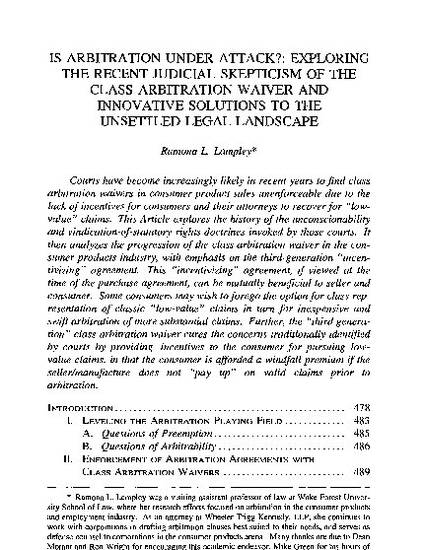
Courts have become increasingly likely in recent years to find class arbitration waivers in consumer product sales unenforceable due to the lack of incentives for consumers and their attorneys to recover for "low value" claims. This article explores the history of the unconscionability and vindication-of-statutory rights doctrines invoked by those courts. It then analyzes the progression of the class arbitration waiver in the consumer products industry, with emphasis on the third-generation "incentivizing" agreement. This "incentivizing" agreement, if viewed at the time of the purchase agreement, can be mutually beneficial to seller and consumer. Some consumers may wish to forego the option for class representation of classic "low-value" claims in turn for inexpensive and swift arbitration of more substantial claims. Further, the "third generation" class arbitration waiver cures the concerns traditionally identified by courts by providing incentives to the consumer for pursuing low value claims, in that the consumer is afforded a windfall premium if the seller/manufacture does not "pay up" on valid claims prior to arbitration.
